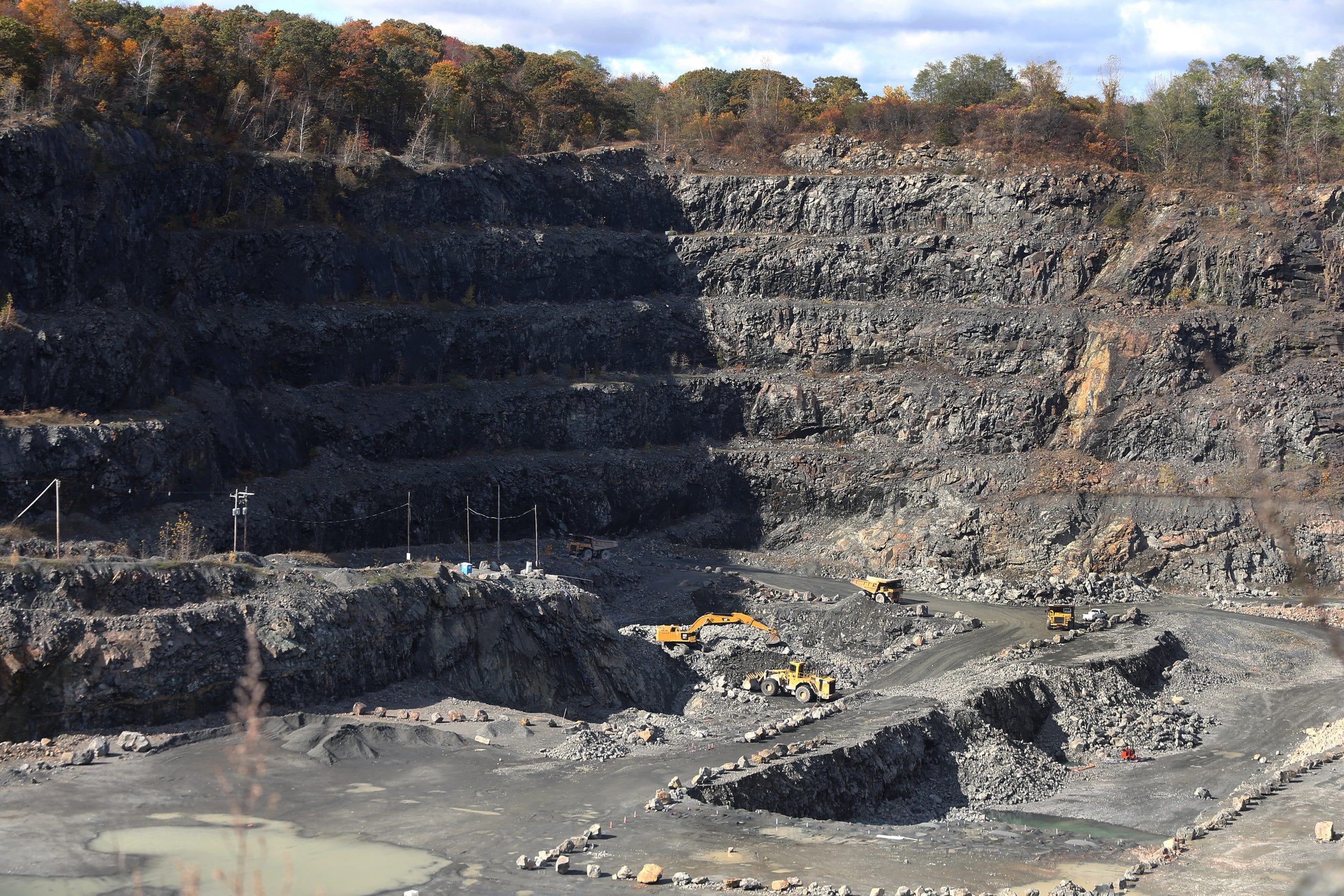SWAMPSCOTT — After three months of listening to abutters articulate their concerns about Aggregate Industry’s quarry blasting, a solution to the situation was reached in October.
Town Administrator Sean Fitzgerald announced that AI had agree to limit quarry blasts to two per week.
The agreement came as the result of three months worth of complaints from Swampscott residents about the noise, the public health risk from the dust, and structural damage to houses.
“We’ve had some very constructive discussions with Aggregate Industries over the restriction of blasts per week and the power of those blasts,” said Fitzgerald. “The residents of Swampscott have been impacted significantly over the years and we want to see some efforts made to address those concerns. We have a responsibility to the citizens of this town and we are hopeful that this will be a formative discussion. We’re looking to strike a balance that is long overdue.”
Kurt Hines, AI operations manager, along with members of both the Earth Removal Advisory Committee (ERAC) and the town administration, met three times after a Select Board meeting where these grievances were articulated, and they agreed to both interim and long-term conditions in an attempt to alleviate the situation.
Interim conditions included the limit of two quarry blasts per week, no more ground blasts that go deeper than 80 feet, and adding a third seismograph that gets blast data from the areas surrounding Essex Street.
Aggregate also said it would stop plant operations by 9 p.m., hire a consultant to carry out blast recommendations with the goal of keeping neighbors in mind, and start a dust study that would determine how the films form and what the contents of the dust include.
Over the long haul, AI agreed to look at noise models to reduce the noise impact, adding or moving the blast warning sirens, holding a community meeting at the beginning of the year, and studying the contamination and effects of the blasts on Foster’s Pond.
“We have been looking at our other permits in our other municipalities where we blast in order to improve the one we have in Swampscott,” Hines said at the meeting. “We’re going to keep working through these items and continually improve our business model.”
Among those concerned was Nichols Street resident Ana Lanzilli and while she was happy that AI was going to address the problem, she still had issues with the plant being in operation until 9 p.m., which she considers unreasonable.
“I am happy they are making changes,” she said. “It seems like Aggregate definitely has good faith, but we can’t just base this on good faith. They have to make changes, which they are starting to, but there is still a lot of work that needs to be done.”

